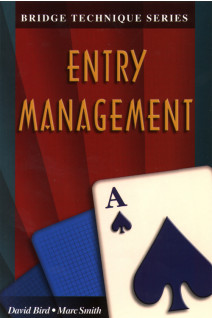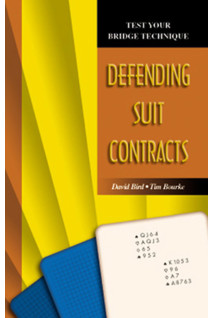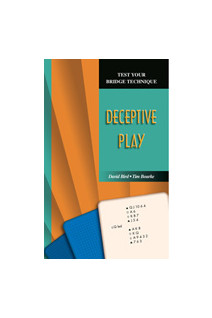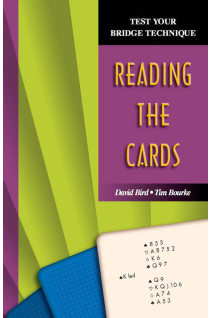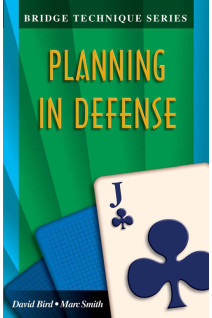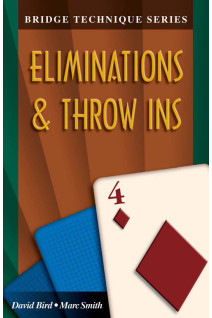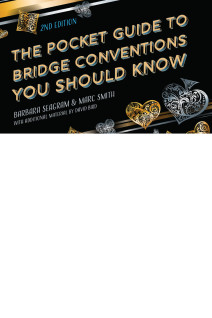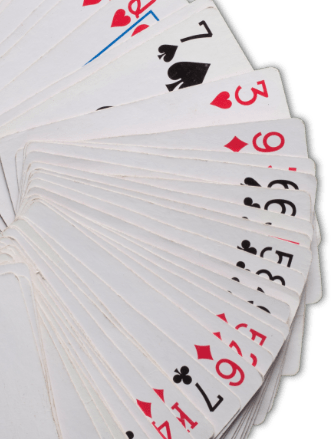Twelve Important Bridge Lessons on Defense
- Adobe .PDF
- .epub format (most e-Readers)
- .mobi format (for Kindle)
The instructive material in this book is presented in a novel way, as if the author is delivering a series of bridge lessons to a small group of enthusiasts. Occasionally, members of the audience ask questions, or make comments. Twelve important topics have been chosen, describing defensive techniques that you might apply several times during every session you play. Each lesson contains at least eight illustrative full deals, which are fully explained in David Bird’s clear and lucid style. There is then a set of recap questions to test you on the chosen topic, along with the answers. Finally, there are four defense problems, which can be solved with the techniques just described. Early lessons cover the basics of defense, signaling to partner, defensive communications, continue or switch, also a novel lesson on opening leads, based on results from computer analysis. Youmay be surprised how much there is to learn about these apparently straightforward elements of defense. Later, you can enjoy lessons on making declarer’s life difficult, scoring ruffs and promotions, keeping the right cards, unblocking techniques, the forcing defense, breaking declarer’s communications, and counting in defense. You can sharpen your defense by revisiting these lessons time and again.
- Number of pages: 213
- Language: English
- Categories:
The instructive material in this book is presented in a novel way, as if the author is delivering a series of bridge lessons to a small group of enthusiasts. Occasionally, members of the audience ask questions, or make comments. Twelve important topics have been chosen, describing defensive techniques that you might apply several times during every session you play. Each lesson contains at least eight illustrative full deals, which are fully explained in David Bird’s clear and lucid style. There is then a set of recap questions to test you on the chosen topic, along with the answers. Finally, there are four defense problems, which can be solved with the techniques just described. Early lessons cover the basics of defense, signaling to partner, defensive communications, continue or switch, also a novel lesson on opening leads, based on results from computer analysis. Youmay be surprised how much there is to learn about these apparently straightforward elements of defense. Later, you can enjoy lessons on making declarer’s life difficult, scoring ruffs and promotions, keeping the right cards, unblocking techniques, the forcing defense, breaking declarer’s communications, and counting in defense. You can sharpen your defense by revisiting these lessons time and again.

 Swipe left
Swipe left



